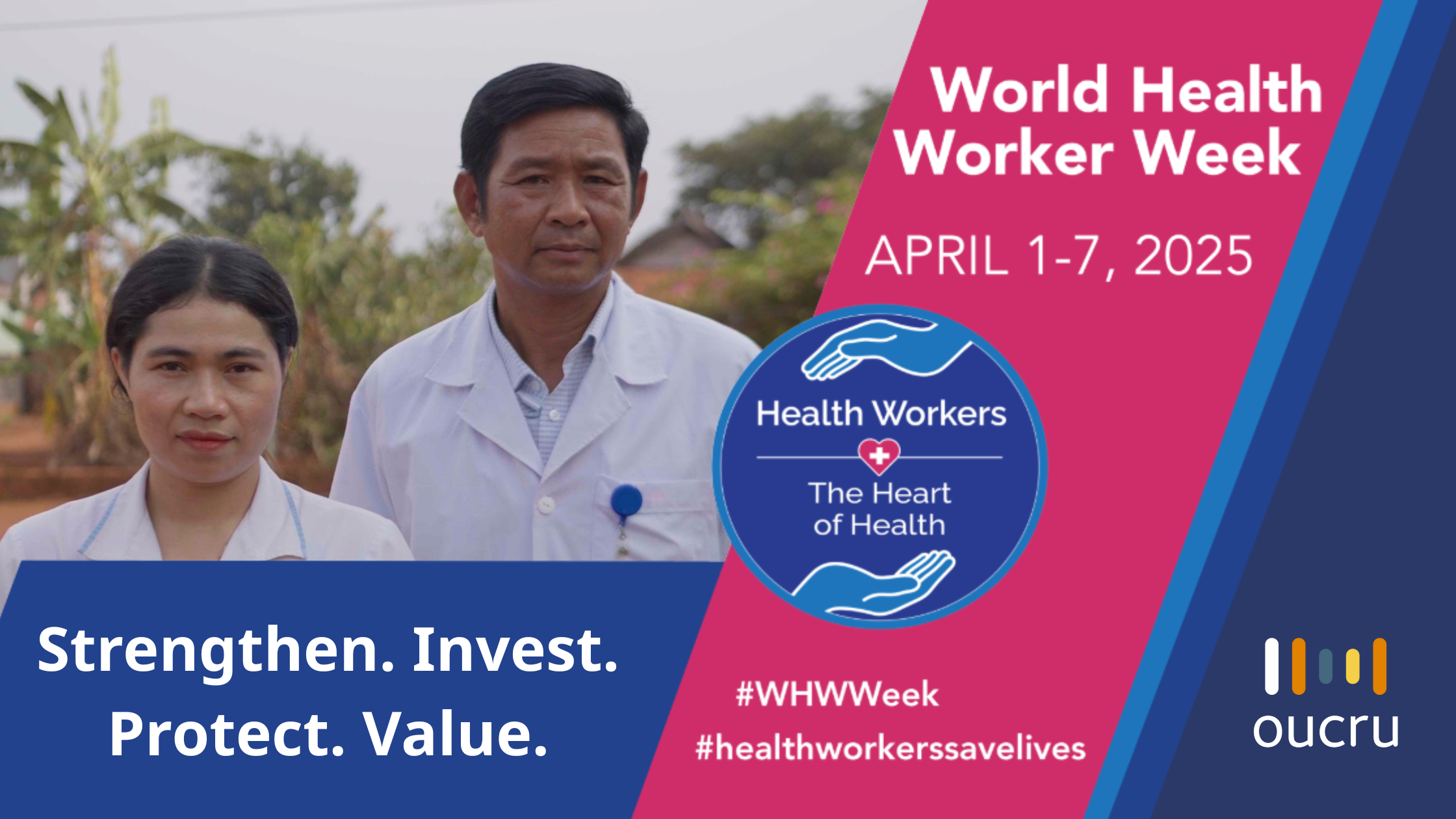World Health Worker Week (#WHWWeek) highlights the importance of the health workforce – nurses, pharmacists, epidemiologists, doctors, community health workers/volunteers, technicians, and their colleagues – the heart of global health.
Led by the Frontline Health Workers Coalition, #WHWWeek calls for increased investment in all cadres of the health workforce and advocates for prioritizing human resources for health on the global agenda. It is an opportunity to highlight the crucial role that sustained leadership and long-term investments in the health workforce play in achieving resilient health systems and advancing development goals.
#healthworkerssavelives and foster healthier communities by managing illness, preventing the spread of disease, providing education, among other things. In doing so, health workers also help drive economies – protecting the health of employees, reducing absenteeism and otherwise helping people thrive. Let’s make sure all cadres of health workers are compensated, protected, retained and succeed so that they can continue to help people live healthier, more productive lives.
Key Messages
Strengthen the health workforce.
By 2030, there will be a shortage of 11 million health workers, predicted by WHO. Increased investment in the health workforce is not only necessary; it is a wise and worthwhile strategy to strengthen global health and achieve development targets. Well-trained, protected, and fairly compensated health workers lie at the core of health care.
Investments in health workers deliver returns.
Donors from philanthropic organizations, foundations, multilaterals, banks, and private sector must help close the existing gap in health workforce funding. This investment benefits business, the economy, and broader development goals.
- Building resilient health systems requires prioritising long-term investment in health workers with essential resources and training.
- Poor health costs 15% of global real GDP annually, making health investment economically vital.
- Health workforce investment could extend global life expectancy by 3.7 years and save 60 million lives by 2030.
Protect health workers, who protect our health.
Health workers serve as frontline preventers and providers of essential health services. Their physical and mental wellbeing must be protected to ensure optimal community care.
- Achieving SDG 3 (Good Health and Well-Being) requires a strong health workforce, supported by aligned global financing and implementation strategies.
- Over 60% of health workers face workplace violence. Combined with poor working conditions and low pay, this leads to high turnover rates.
Value health workers, who facilitate good health and contribute to economic growth.
Health workers are the heart of global health security, preventing and responding to pandemics, infectious diseases, NCDs, and maternal-child health challenges.
- Beyond improving community health, they are active contributors to global GDP by enabling a more productive workforce and reducing absenteeism.
- With women comprising 70% of health workers and over 75% of unpaid healthcare labor, fair compensation and advancement opportunities are essential.
Supporting and strengthening healthcare workers’ capacity has been central to OUCRU’s Public and Community Engagement group’s missions. As a clinical research unit, healthcare workers are essential to OUCRU’s operations and research. Working closely with them, we acknowledge and understand their unique challenges—structural, physical, and mental. Our support programme includes capacity training, mental health support, partnership opportunities, and much more.
One highlight of our healthcare worker strengthening program is a collaboration between OUCRU and Dak Lak’s Department of Health and Centre for Disease Control (CDC) to develop a training package to enhance the capacity of commune vaccine staff, particularly focusing on supporting their communication about vaccines and the vaccination process.
Communes that participated in the training programme saw up to a 42% increase in booster vaccination uptake compared to the communes that did not participate.
“Before the training was implemented, 52 out of 184 communes in Dak Lak fell behind on vaccination. […] Capacity building for frontline health workers is now more important than ever.”
Dr Le Phuc, Vice Director of Dak Lak CDC, said during the progress meeting organised in May, 2023.
To make our training materials accessible, the Public and Community Engagement Group (PCE) partners with The Global Health Network (TGHN) to manage CONNECT, a knowledge and training hub that provides resources for healthcare workers in Vietnam and globally, particularly in research context. Through CONNECT, healthcare workers can access recordings of webinars covering several topics, including emotional communication competence, compassion fatigue, and grief in neonatal care contexts. All materials on CONNECT are freely available to access and download. You can also subscribe here for monthly updates.
Read more about Public and Community Engagement Group’s healthcare engagement programme here.
(*) https://www.frontlinehealthworkers.org/world-health-worker-week-2025



